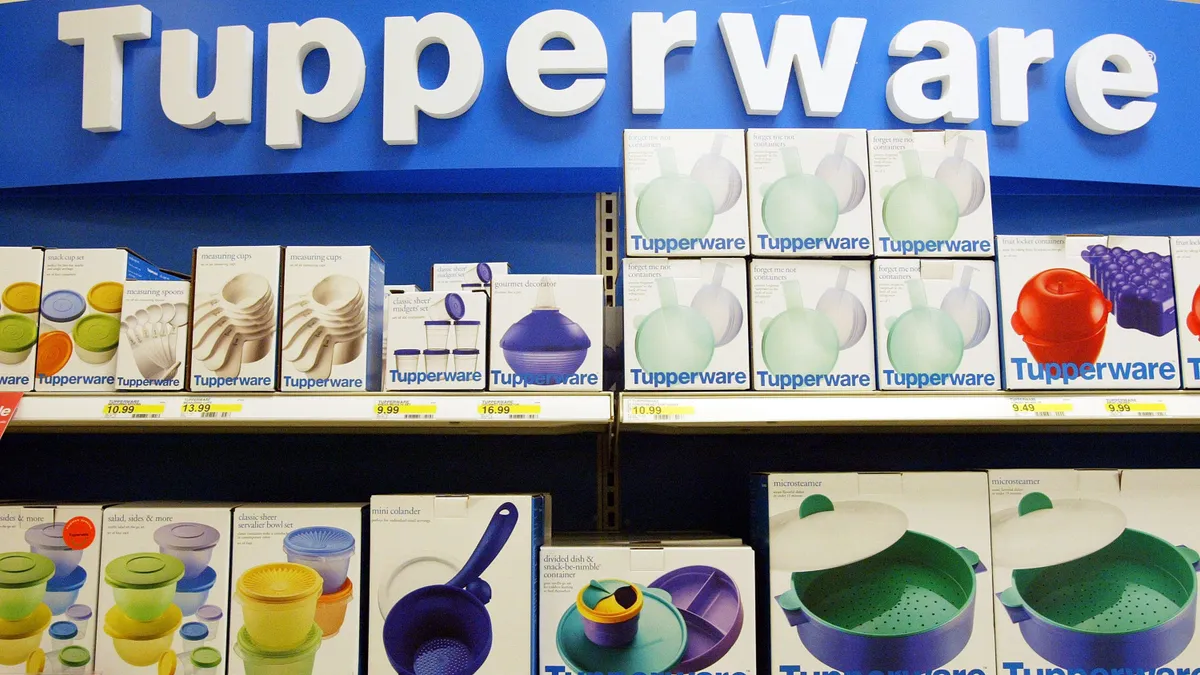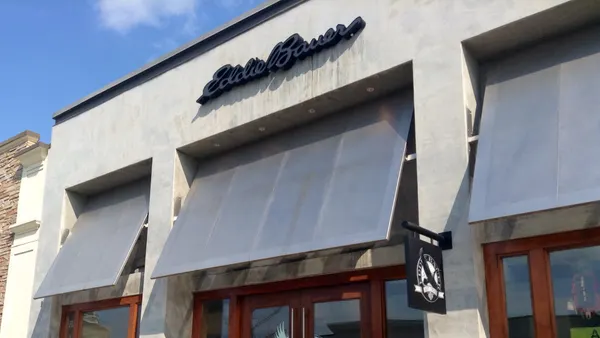Dive Brief:
- Tupperware will selectively idle factories after lower-than-expected demand left the company saddled with too much inventory, CFO and COO Sandra Harris said during an earnings call earlier this month.
- The home products company had intentionally stocked up during the first half of the year to prepare for a surge in demand, Harris said. But that surge has yet to come, and Tupperware factories will take "downtime where needed in the future" as the company tries to sell through the inventory backlog.
- Bloated inventory levels also mean the company hasn't been able to make up the higher costs of manufacturing. Tupperware had upped production with the expectation that the elevated demand would offset higher costs of production, including the sky-high price of resin.
Dive Insight:
After being caught off guard by the strength of a rebound in consumer demand during the pandemic, companies including Lowe's, Best Buy and Macy's moved to build up as much inventory as possible this year ahead of the holiday season to avoid transportation delays and ensure shelves remained stocked.
At least for Tupperware, the higher demand is proving to be only temporary. The company saw incredible appetite for its products at the start of the pandemic when stay-at-home orders had more people eating in.
But demand began to falter as states eased pandemic restrictions, leaving the company stuck with an overabundance of inventory. The company reported $265.3 million in inventory as of Sept. 25, up from $211 million at the end of 2020, according to a recent SEC filing.
"We've seen a reversal of that trend as consumers are excited to get out and go places again and shopping at more traditional retail channels," CEO Miguel Fernandez said on the call. "And we believe this trend will continue."
Newell Brands, the owner of Rubbermaid and cookware brands such as Oster, has seen demand for food storage products remain above pre-pandemic levels, particularly for its glass mason jars. Rubbermaid demand in Q3 was largely driven by a new beverage line, CEO Ravi Saligram said on the company's Q3 earnings call.
Tupperware is in the midst of a three-year turnaround plan as it shifts from direct selling model and adds more omnichannel services. It plans to stay competitive going forward by introducing sub-brands and expanding its "product line beyond the kitchen" to include reusable coffee cups, among other offerings, Fernandez said.
In the near-term, the company will focus on selling through its excess inventory and raising prices when necessary to recover costs.
"We're not even close to the same company that we were 18 months ago, and we're proud of the progress we've made," Fernandez said. "We acknowledge we still have plenty of work to do, but our confidence in our strategy and execution of the strategy has never been higher."

















